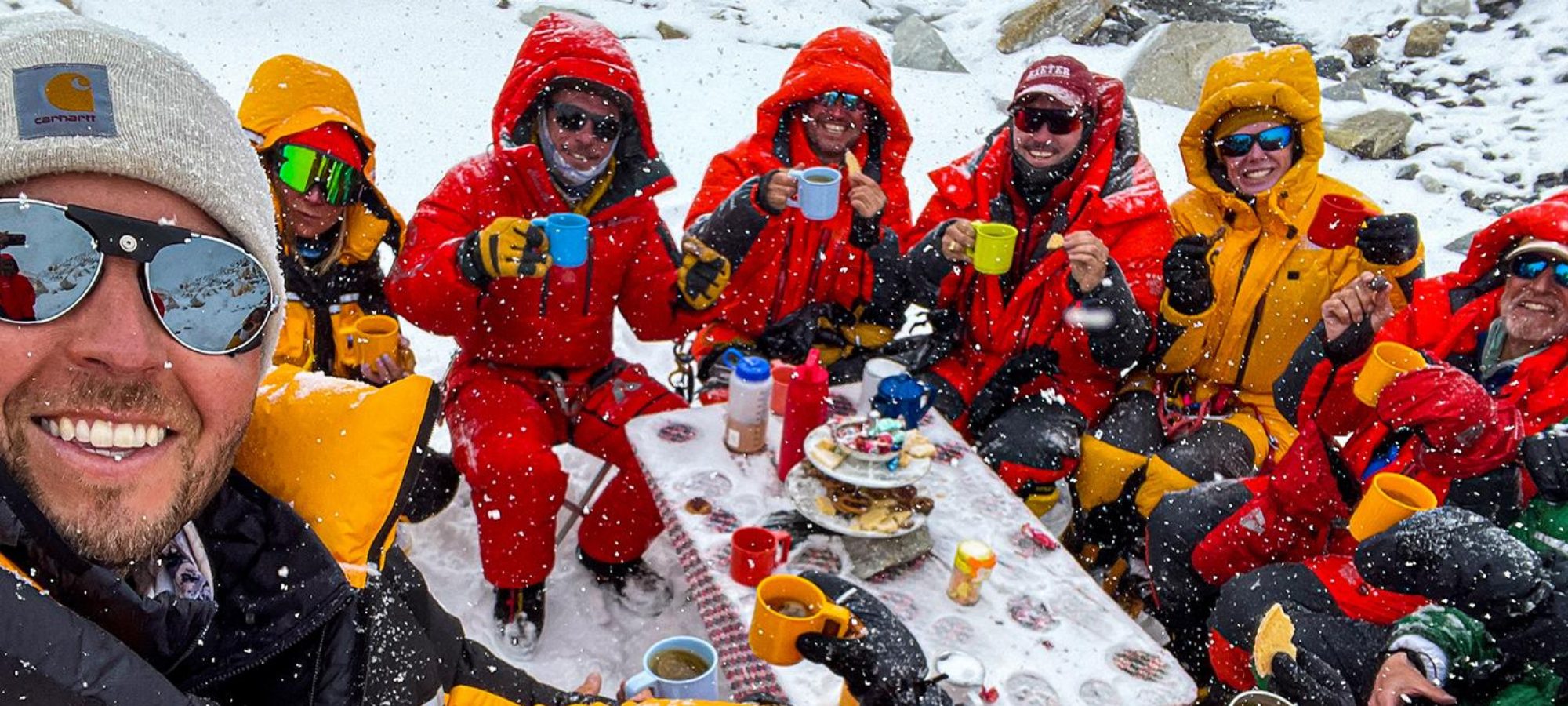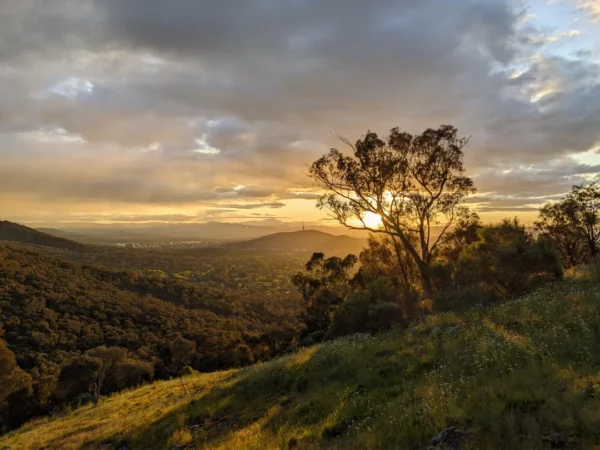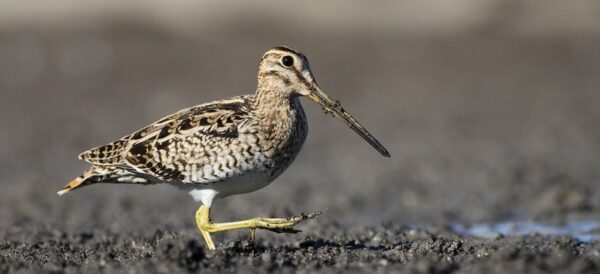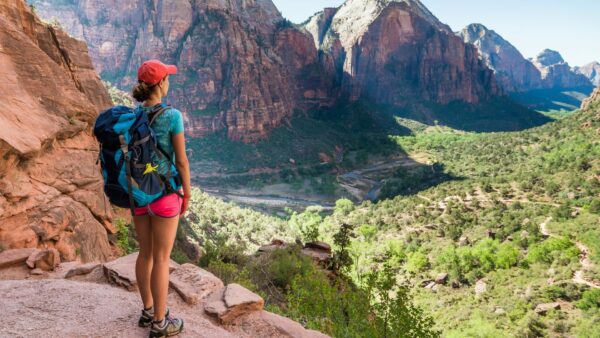We all know these moments when something feels just plainly wrong and out of place.
I felt like this recently, when I saw a Facebook post on a new Guinness World Record: the highest High Tea Party on earth. American adventurer and climber Andrew Hughes and his climbing crew organised this record-breaking event – near Camp 2 on Mount Everest. The photo looked like fun… but it also made me sad at the same time.
Twenty years ago, I might have seen this image and thought: “Yeah, this looks like a great idea. Let’s do something similar!” At that time, my connection to nature was mainly influenced by society’s main narrative that humans are not part of nature. The idea that nature is a nice backdrop and provides resources and services that need to be managed – for the good of humanity.
Then, in the year 2000, I spent some time in Australia’s Northern Territory. My family did a tour with an Aboriginal ranger in Kakadu National Park, who explained to us all the different meanings and uses of a specific type of gum tree. He also shared dreamtime stories about the land. My thinking shifted there and then, as I realized that, in fact, humans and nature are one. We don’t interact with nature, we are nature.
Over the next 21 years, I had more and more lived experiences of this “oneness”. I spent several months on my own in wild natural places in Australia, Brazil, Austria, Netherlands, Germany, and Bhutan. I learned from countless indigenous people on different continents and explored a variety of ancient wisdom traditions. The common element of all these experiences is that “everything is connected; what you do to any other being, you ultimately do to yourself”.
And so, when I saw this picture of a tea party on Mt Everest, I asked myself: where is the respect for this very special place in nature? Do we really need to do everything that is within our physical or technical abilities, just because we can? What might Andrew’s activity inspire others to do? Will we be seeing more tea parties at even higher places?
In my view, the high tea party activities violated the respect for a truly special and sacred mountain. The mountain was devalued by becoming a backdrop to culturally misplaced event. After I saw the Facebook post, I read Andrew Hughes media release. His intentions were actually very positive, and I want to acknowledge him for that.
Nevertheless, for me personally, it felt wrong. There are better ways of connecting with nature.
Bhutan, a kingdom in the Himalayas, banned mountaineering in 2003. The ban was implemented out of respect for the strong spiritual value the local communities attach to the mountains. To these cultures, mountains are extremely sacred, as they are home to the gods and spirits. Climbing the mountains was banned out of respect for the local spiritual beliefs.
I’m not sure banning mountaineering altogether is the answer – but how we connect with the mountain matters.
For example, some like to master getting to the peak – to ‘conquer’ the mountain. Think of the photo showing the crowded path up Mount Everest, or the depiction of climbing in the documentary 14 Peaks where Nepalese mountaineer Nirmal Purja and his team climb the 14 highest peaks on Earth in a very short timeframe.
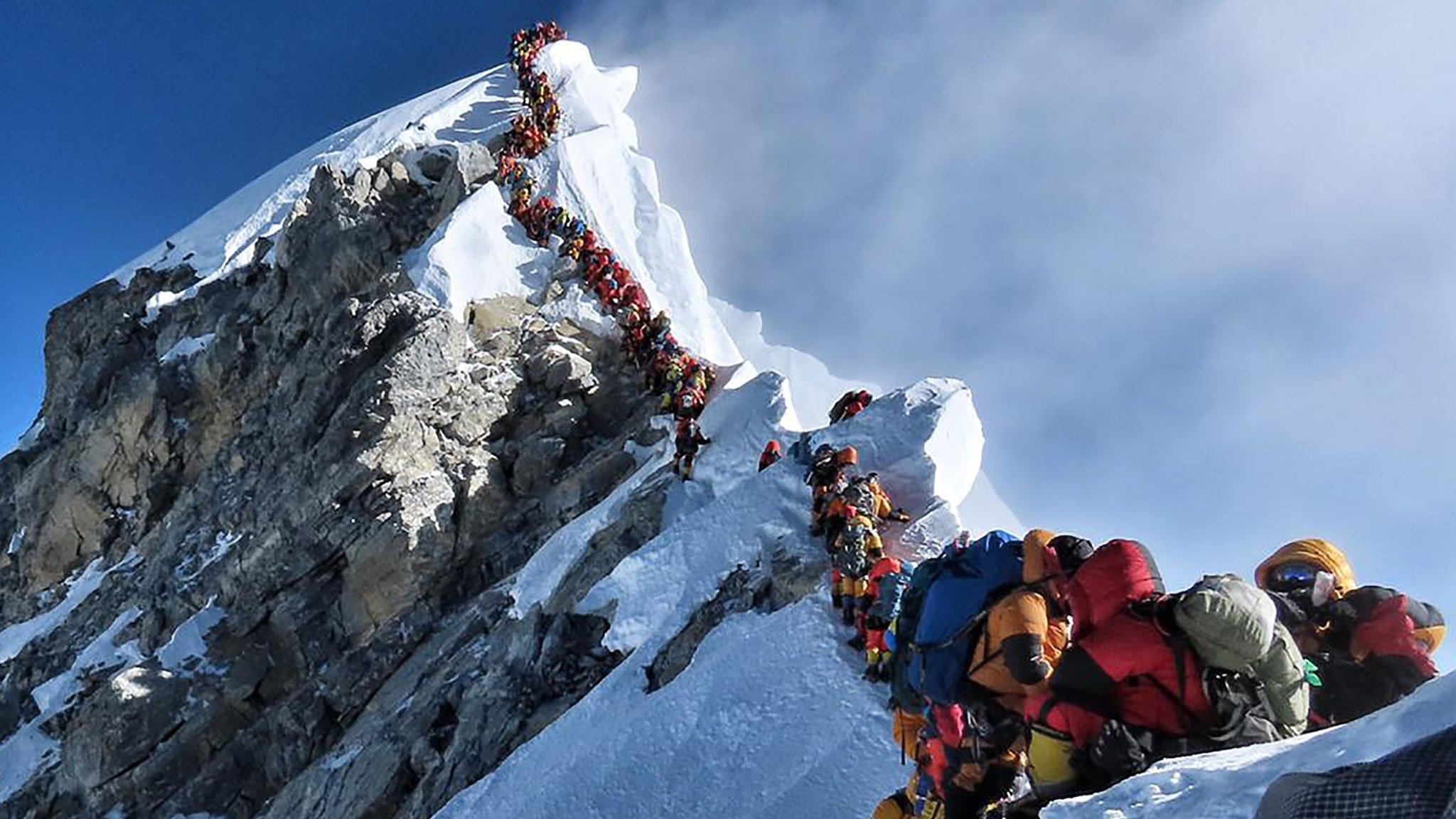
Even though, 14 peaks is very inspiring, another climber, the late Canadian Marc-André Leclerc is far more fascinating to watch in the documentary The Alpinist. Marc-Andre was a solo free-climber who literally morphed into the mountain when he was moving along the rock surface. Watching him, it feels like he was one with the mountain. He expressed huge respect for the mountains he was climbing. He wasn’t in it for the photo-op on social media. For him, it was the pure pleasure of being in the moment, skillfully hanging onto a rock and enjoying life in that very moment.
Why does this matter? Healthy people need a healthy planet. Nature is humanity’s life-giving system. We can’t exist without it. Health is created every day, everywhere and by everyone. In many small actions and connections. The underlying mindset is determining what we do. If it’s ‘us vs nature’, we all lose. If it’s ‘we and nature’, we all win.
The acknowledgement that we are one with nature leads us to respect, protect and revere natural places, rather than use and abuse them for our own pleasure and progress. A tea party on Mt Everest might just be a small example, but it’s a symptom of a wider issue: if we don’t see ourselves as part of nature, we risk losing our health and happiness.
I believe we all need to be more aware, considerate and caring for the eco-systems we are all part of. Our ancestors had had the knowledge and skills to do this correctly. It’s time to re-learn some of those skills. Slowing down, observing, noticing, appreciating, being grateful, and gathering practical care tips would be a great start.
To preserve more of the wild places that we all love so much, I’d like to invite you to explore different perspectives. I’d like you to ask yourself: “How are my connections with nature benefiting me, other people and the eco-system overall? Do I give as much as I take?”
Enjoy the wild – responsibly.
Ingrid is a mentor, coach, facilitator, author and speaker who supports organisational leaders and teams to optimise their positive impact, performance and wellbeing. Learn more about her book, Naturally Successful here or connect with Ingrid on LinkedIn here.



